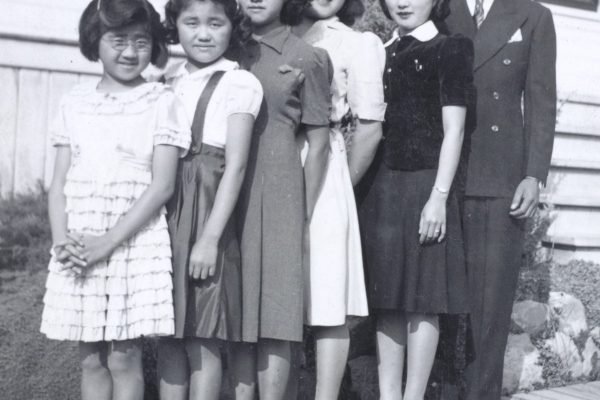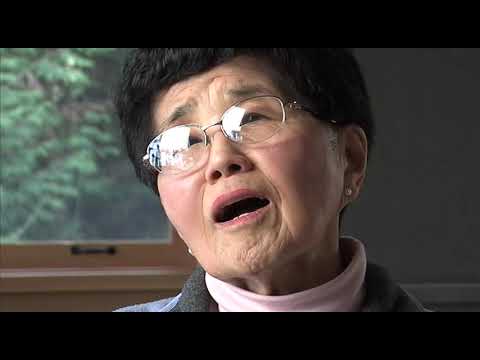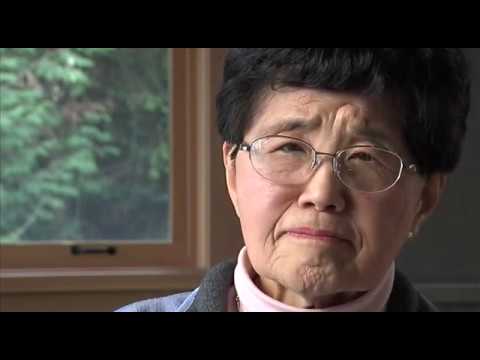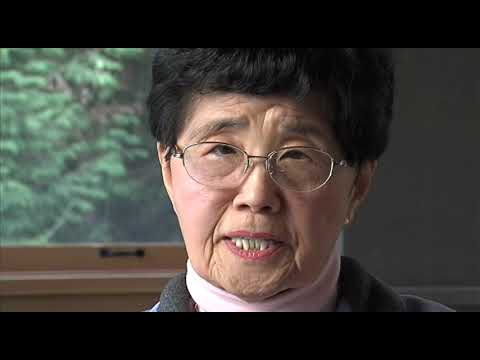Video Interview — December 2006
Japanese Hall, school, farming, Caucasian friends – Yae Yoshihara (OH0032)
Transcript
Life on Bainbridge was pretty simple. Even where our house was located, there was no electricity. It was pretty primitive… outdoor plumbing, well water, kerosene lamps, wood stove. It was very simple. Later on, my dad built the house, which is on Madison, North Madison. Anyway, that was back in 1936 and I was in the second grade. We moved to the location where there was electricity. That was something new for us. And… radio, refrigerator… so, you can see how different life was. Socially, the Japanese, more or less, kind of stuck to themselves. There was a Japanese community… the Japanese Hall where people assembled. There was Japanese language school.
When the kids were in third grade they would start the Japanese language school as a first grader. That’s how I began. In the third grade I started Japanese language school. Then with… we played with our friends. In school we mixed… we were able to, you know, on the playground everybody played together. But when it came to kinda group things, it was always with our Japanese friends. We generally were not invited to the Caucasian parties or homes.
In the Japanese community, at that time, they had… like they would have annual bazaar. And then from time to time, a person from Seattle would bring Japanese movies. We would watch that. Then, sometimes there would be a talent show or some program and the people participated. For some reason I was always nominated to sing. ‘Cause I liked to sing. But, I don’t know, I just picked to do that. Then the Japanese school would have a program. We had to sing Japanese songs or whatever we learned. Mrs. Ohtaki was very patient with us because she had unruly students to manage and try to teach. The younger ones did attend Japanese school on Saturdays. The older ones had to work on Saturdays or help on the farm, but the younger ones… so we spent the day, Saturdays, attending language school. That was another way of bonding more.
Because the houses were spread apart, we didn’t have what you call a “next door neighbor.” I mean, you could yell on top of your lungs but the neighbor may not hear you because of the distance. But, when we had time we would go to their house or they would come over to our place to play. As a whole, we played with the siblings whenever we weren’t helping on the farm. ‘Cause, for the older ones, like my brother had to do the heavier work… help my dad do the heavier work. The older ones did the more complicated work on the farm, like setting the runners and hoeing. Whereas the younger ones, we just had to do the weeding by hand, or, spread the, not the fertilizer, but the insecticide because there were insects that would eat the plants. Summertime, it was always helping with the strawberry harvesting. We would pick berries and dad would have us, have our tickets punched, and at the end of the season he would pay us. That was one way of earning a little money.





